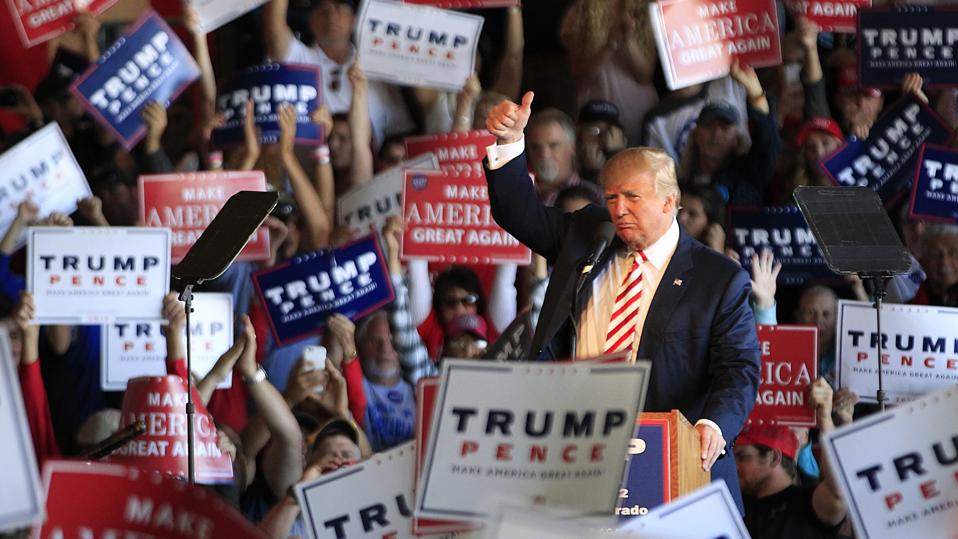Former President Donald Trump will not make it onto Colorado’s 2024 primary ballot, the state’s Supreme Court ruled Tuesday, the first court ruling to find Trump should be disqualified from reelection under the 14th Amendment—and ensuring it’s all but certain the dispute will make it to the U.S. Supreme Court.

Donald Trump speaks at a rally on October 18, 2016 in Grand Junction, Colorado.
Getty Images
Key Takeaways
- Left-leaning ethics watchdog Citizens for Responsibility and Ethics in Washington (CREW) brought a lawsuit on behalf of Colorado voters seeking to have Trump disqualified from the state’s 2024 ballot under section three of the 14th Amendment, which prohibits people from holding public office who have taken an oath of office and then “engaged in insurrection or rebellion against the [U.S.], or given aid or comfort to the enemies thereof.”
- After a week-long hearing, a lower court in Colorado ruled that Trump could stay on the ballot, believing the 14th Amendment doesn’t apply to presidents because the statute doesn’t name them specifically, though the court did find Trump engaged in an insurrection by inciting his supporters to riot on Jan. 6, 2021.
- The court, which is made up of all Democratic appointees, ruled in a 4-3 decision that Trump cannot appear on the ballot.
- The Trump 2024 campaign did not immediately respond to a request for comment.
What To Watch For
The Colorado Supreme Court’s ruling is likely to get appealed to the U.S. Supreme Court, marking the first time the high court will be asked to rule on the merits of the 14th Amendment dispute. (The U.S. Supreme Court previously declined to hear a 14th Amendment case brought by longshot candidate John Castro, which a lower court dismissed because Castro didn’t have standing to bring the case, and did not rule on the merits of the case.) It’s still unclear if the U.S. Supreme Court will take up the dispute if it’s appealed, though legal experts and state officials have broadly expected justices to weigh in on the 14th Amendment issue as cases have popped up across the country. The Michigan Supreme Court may be the next state Supreme Court to weigh in on the issue, as left-leaning group Free Speech for People asked the court Monday to hear its lawsuit against Trump after an appeals court ruled against it.
Key Background
The debate over whether Trump can be disqualified under the 14th Amendment has become a growing issue as the 2024 election has neared, with legal scholars weighing in on both sides—and even some conservative scholars arguing the case against Trump has merit. Trump has heavily protested the efforts to disqualify him, arguing it violates his constitutional rights and that the only way the 14th Amendment provision could be enforced is through an act of Congress. CREW, Free Speech for People and other plaintiffs have brought a series of lawsuits across the country challenging Trump’s candidacy, though courts have already ruled in favor of Trump staying on the ballot in such states as Florida, Michigan and Minnesota. Judges in Michigan and Minnesota suggested that cases could be brought again during the general election, however, ruling that they can’t kick Trump off the primary ballot specifically. Challenges to Trump’s candidacy still remain pending in 12 states, according to a tracker maintained by Lawfare.
Surprising Fact
A 14th Amendment argument has worked in the recent past, as Couy Griffin, a local commissioner in New Mexico, was removed from office in September 2022 and barred from being elected again due to his role in the Jan. 6 riot. That marked the first time the 14th Amendment had been used to remove someone since 1869.
This article was first published on forbes.com and all figures are in USD.


